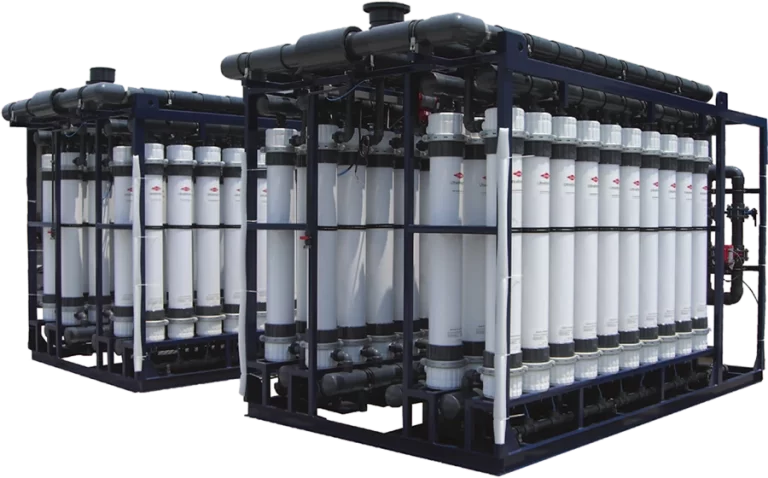
What it is Ultra-Filtration (UF)
How it works
Pressure Application
UF relies on hydrostatic pressure to drive the liquid through the membrane, which has tiny pores that block larger particles and microorganisms.
Membrane Filtration
The semi-permeable membrane allows water and smaller molecules to pass through while retaining larger particles, including bacteria and viruses, ensuring clean output.
Permeate Collection
The filtered, clean water that passes through the membrane is collected as permeate, ready for use or further treatment.
Applicable Industries
Key Features
Effective Contaminant Removal
UF effectively eliminates a wide range of microorganisms and suspended solids, ensuring high water purity.
Energy Efficient
Generally, requires less energy compared to other filtration methods, making it a cost-effective solution for various applications.
High-Quality Output
Produces clean and safe water suitable for drinking, industrial use, and more, meeting rigorous quality standards.
Versatility
Adaptable to a variety of applications across multiple industries, from food processing to wastewater treatment, highlighting its broad utility.


